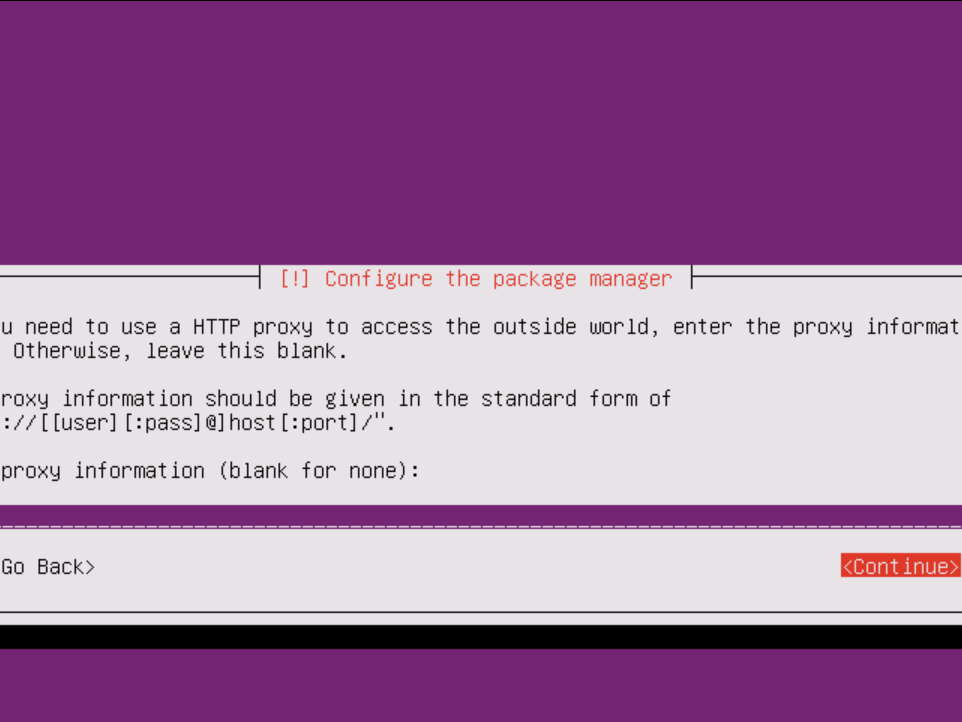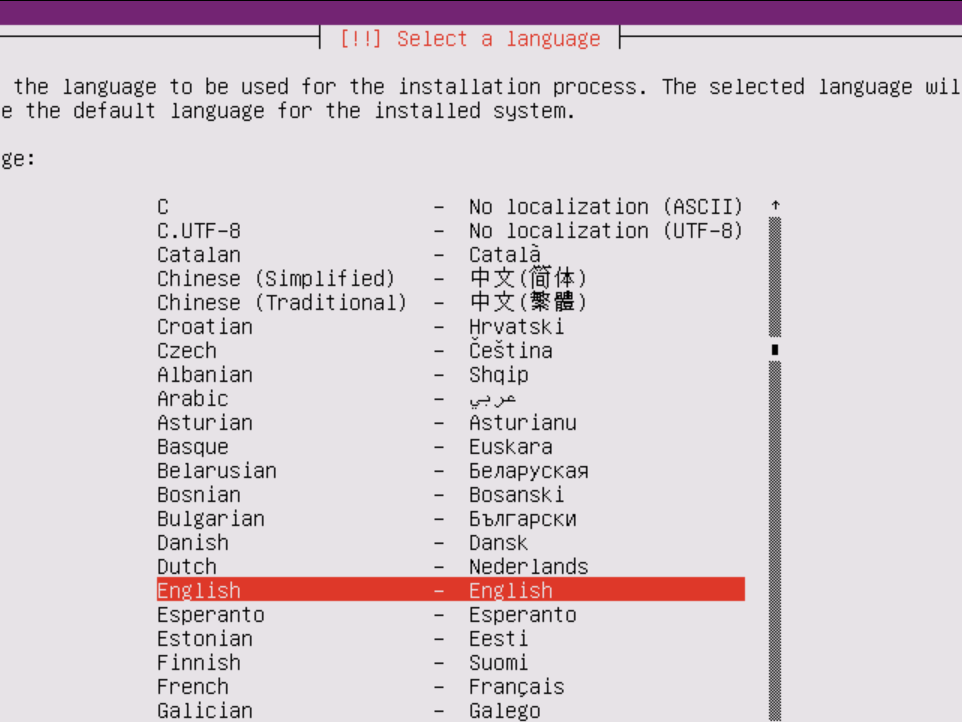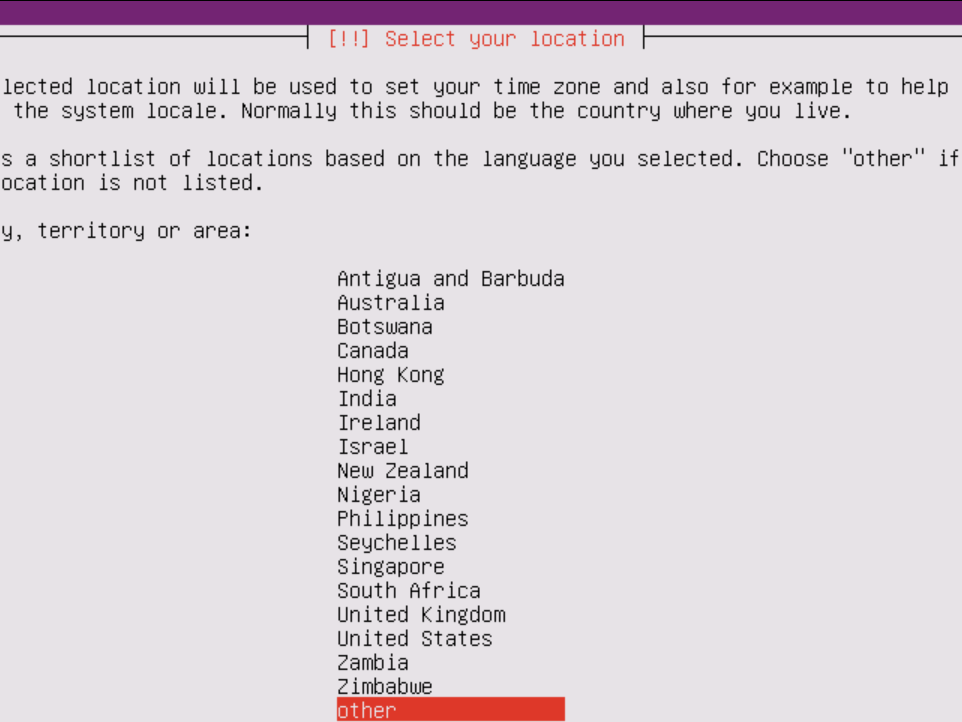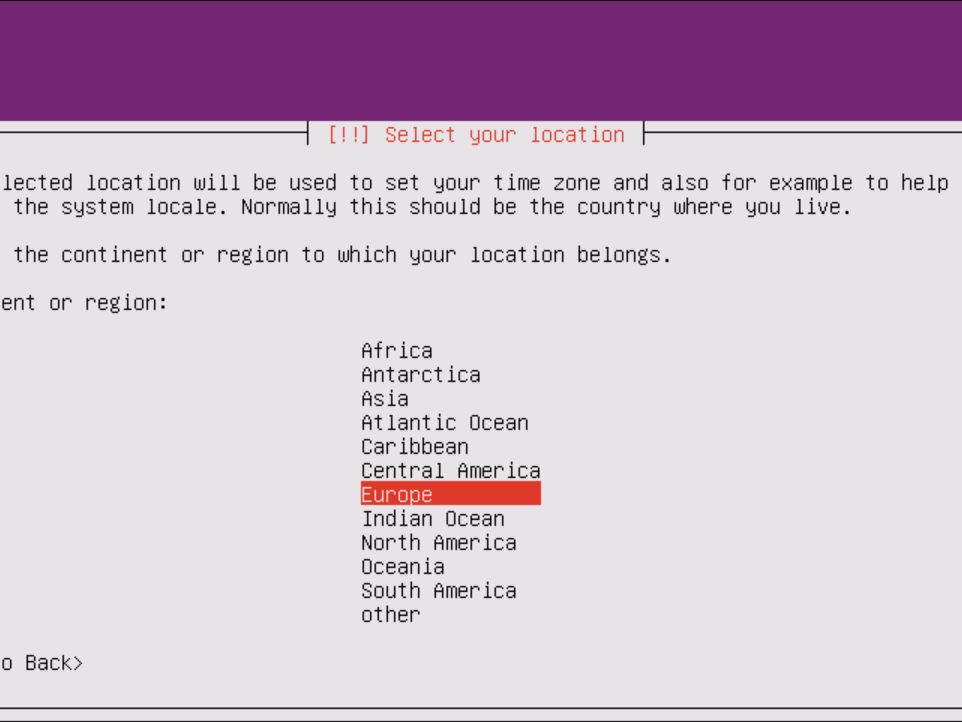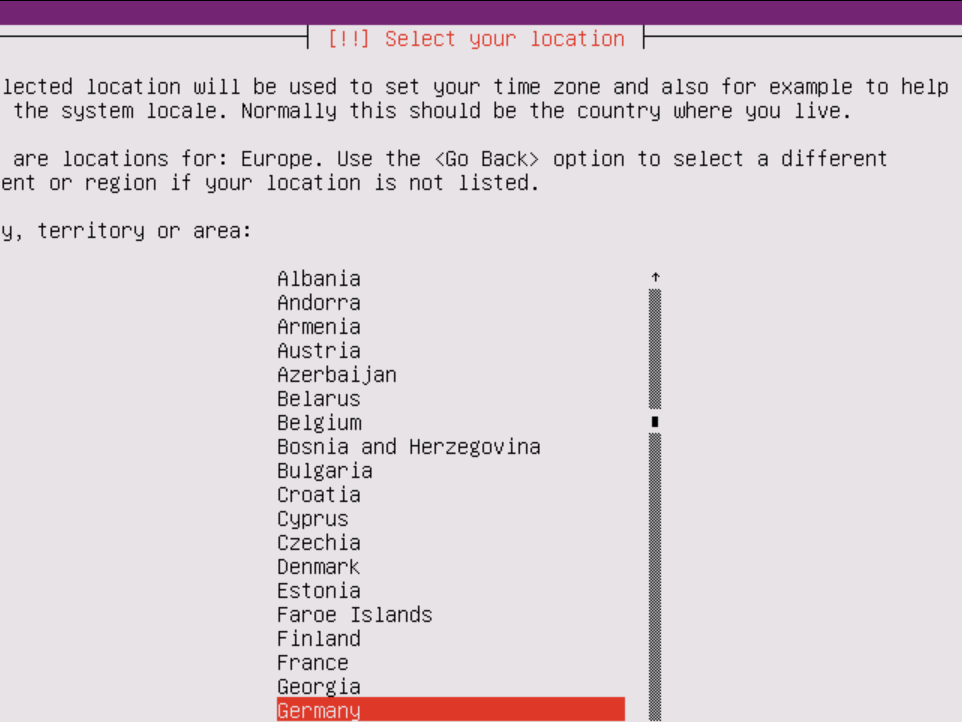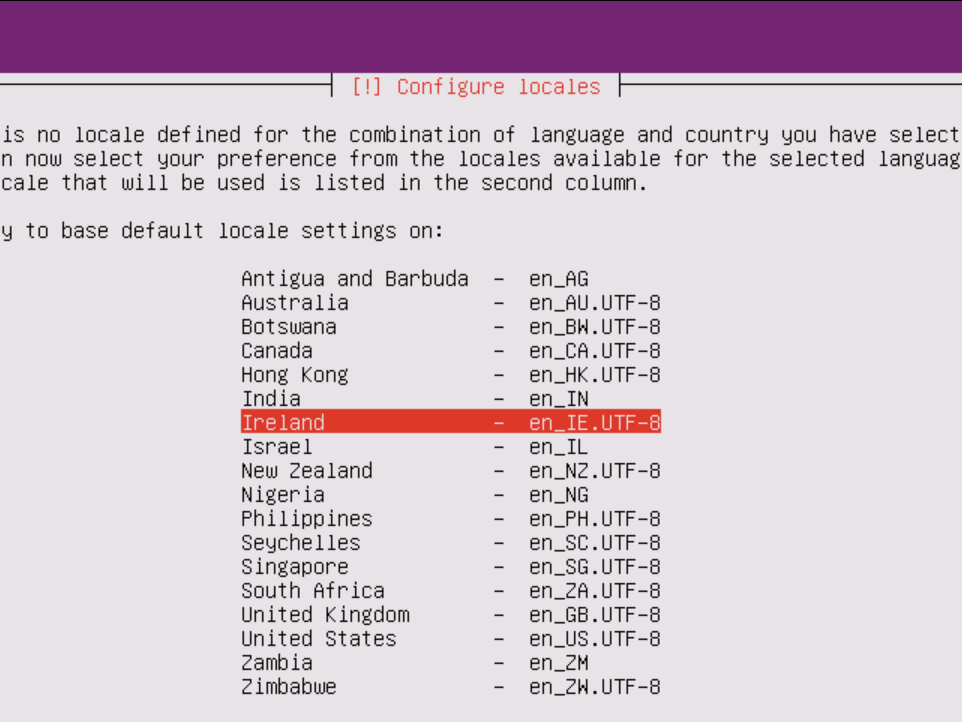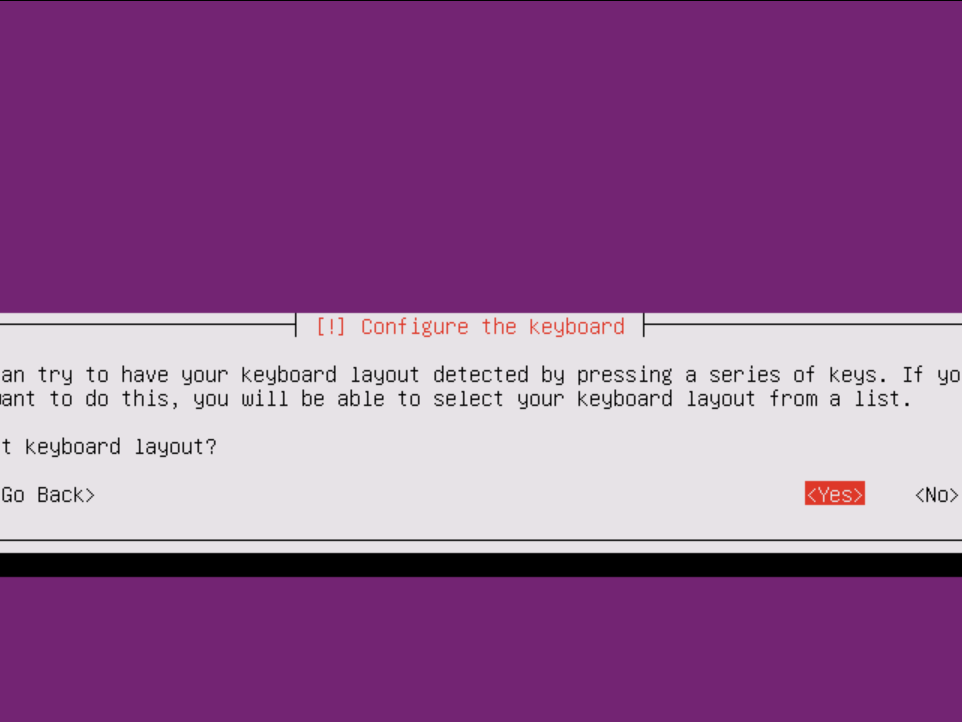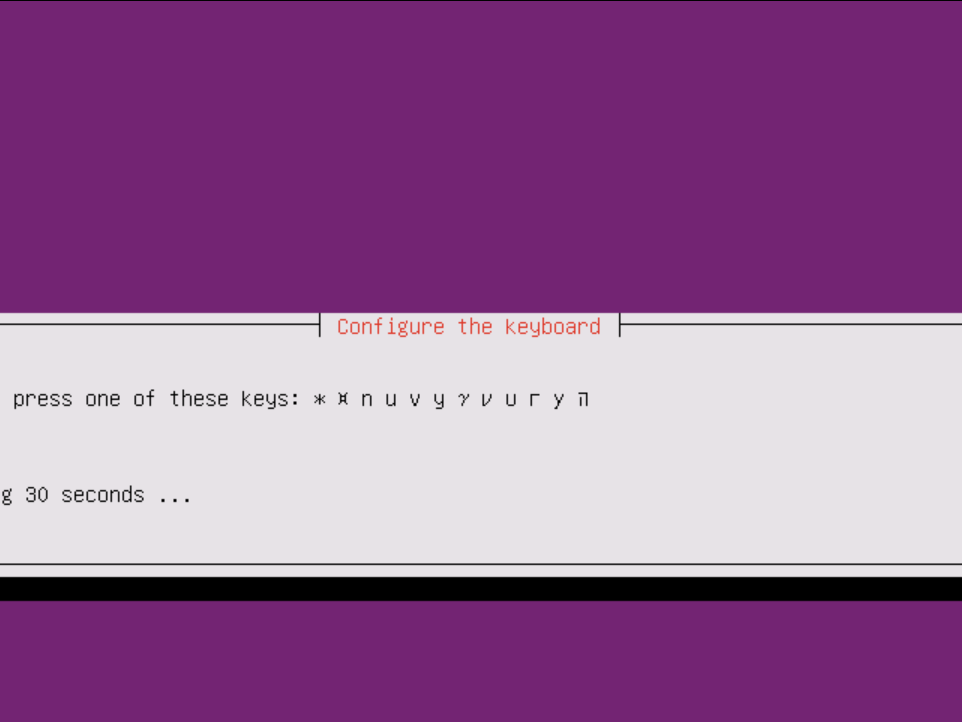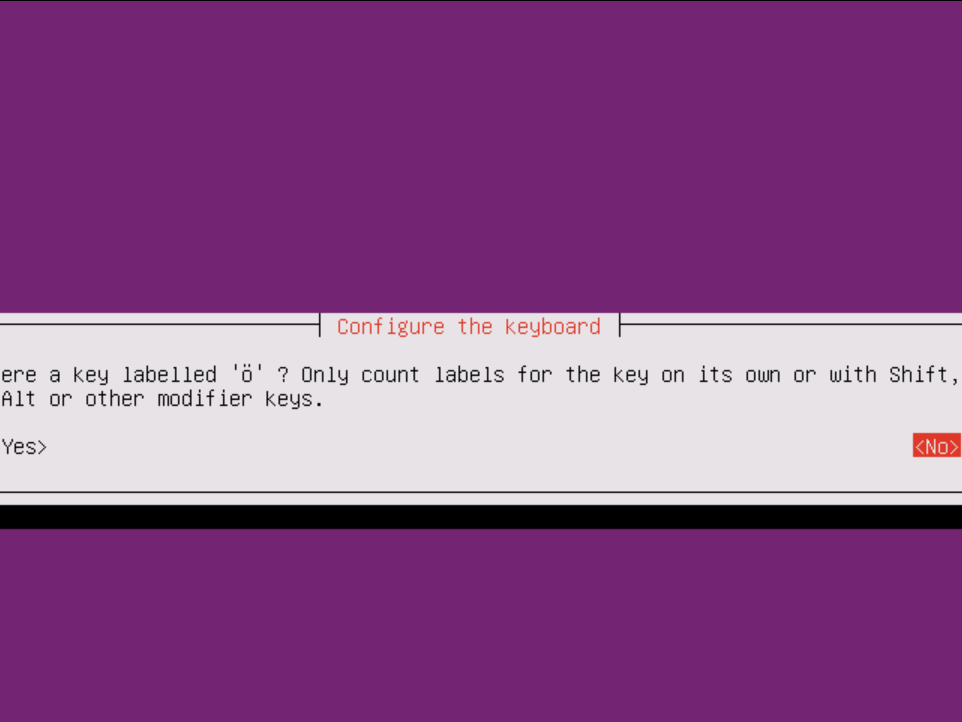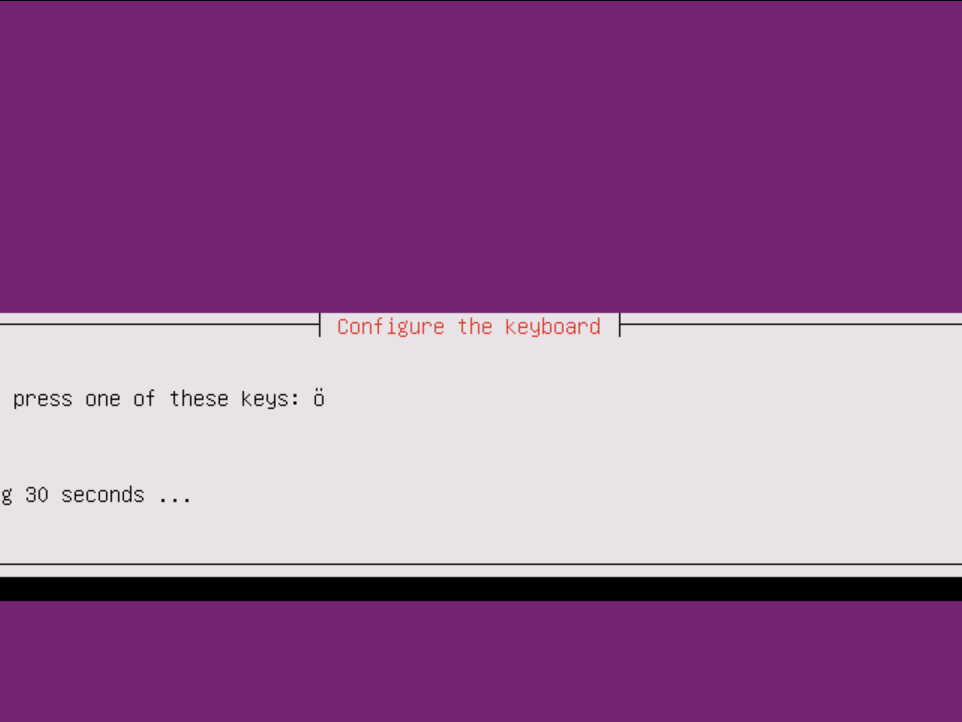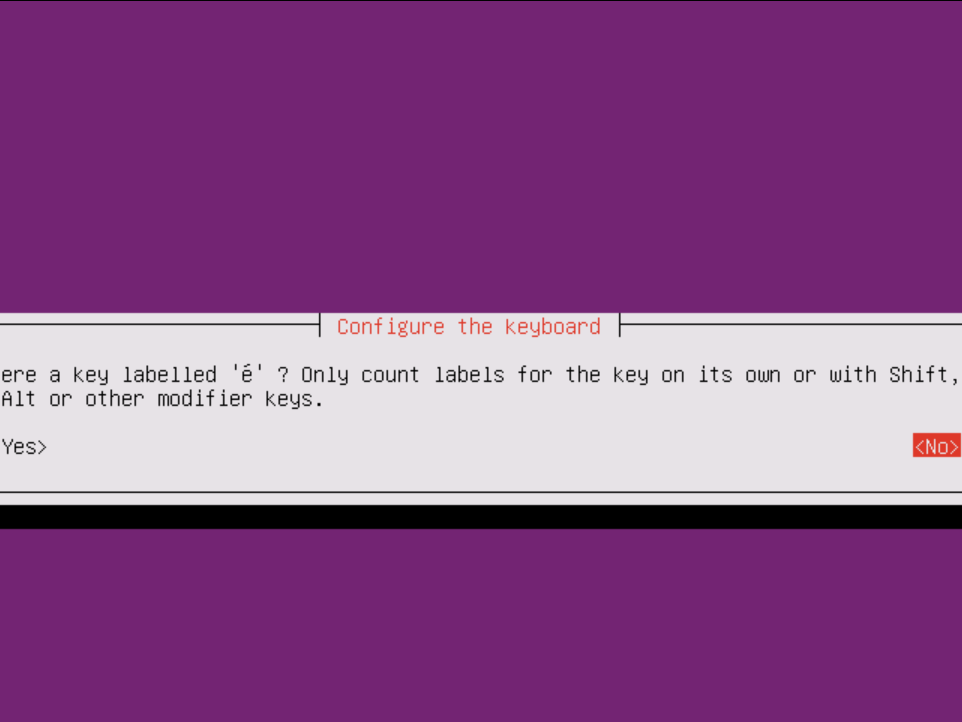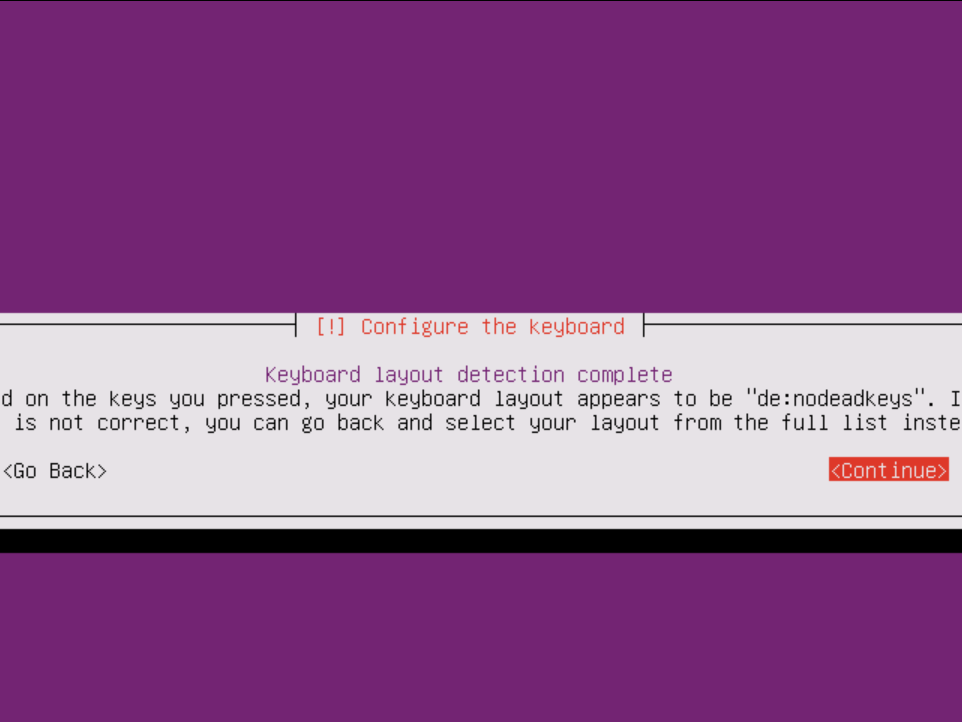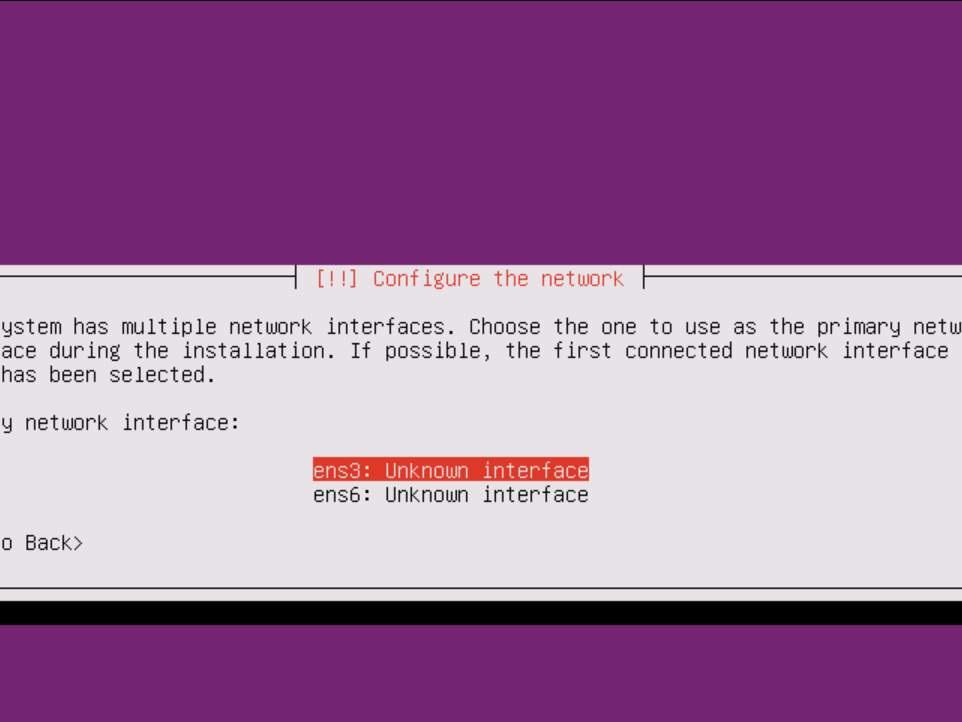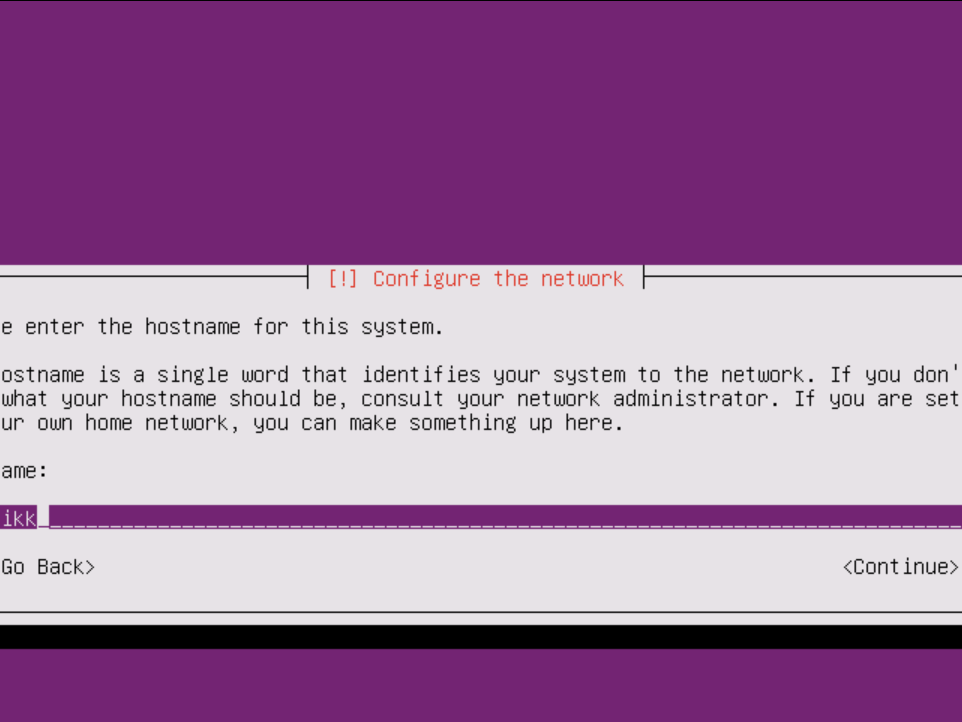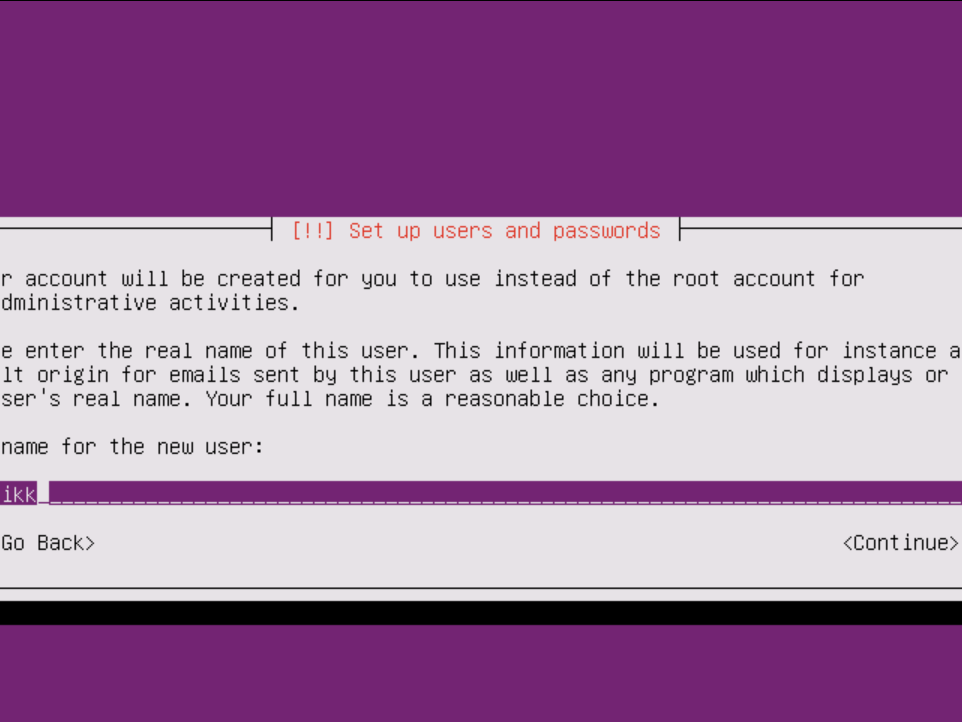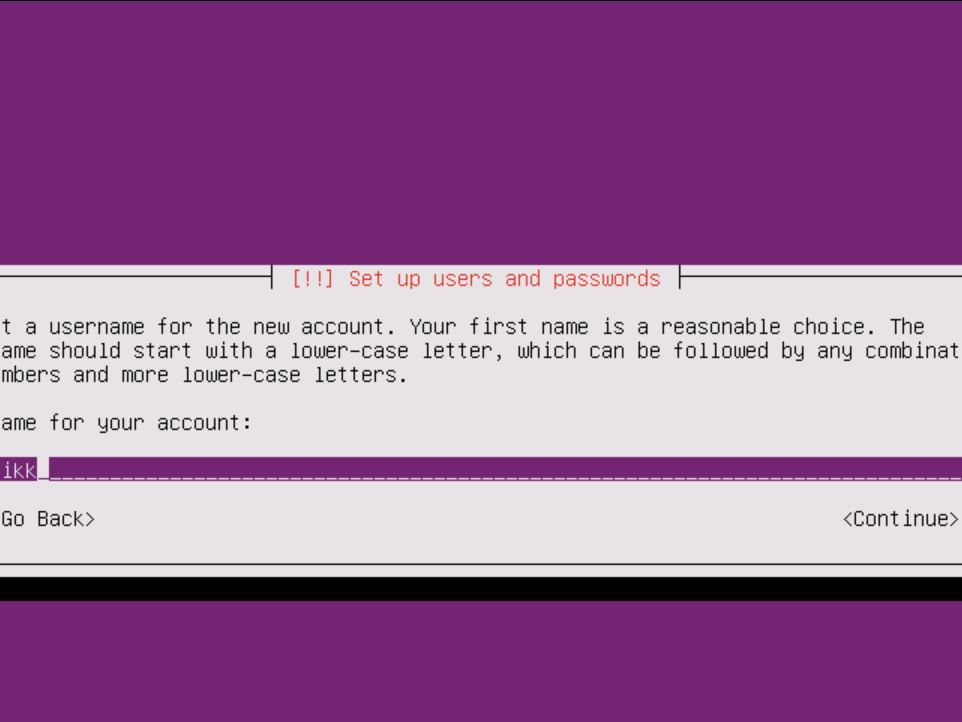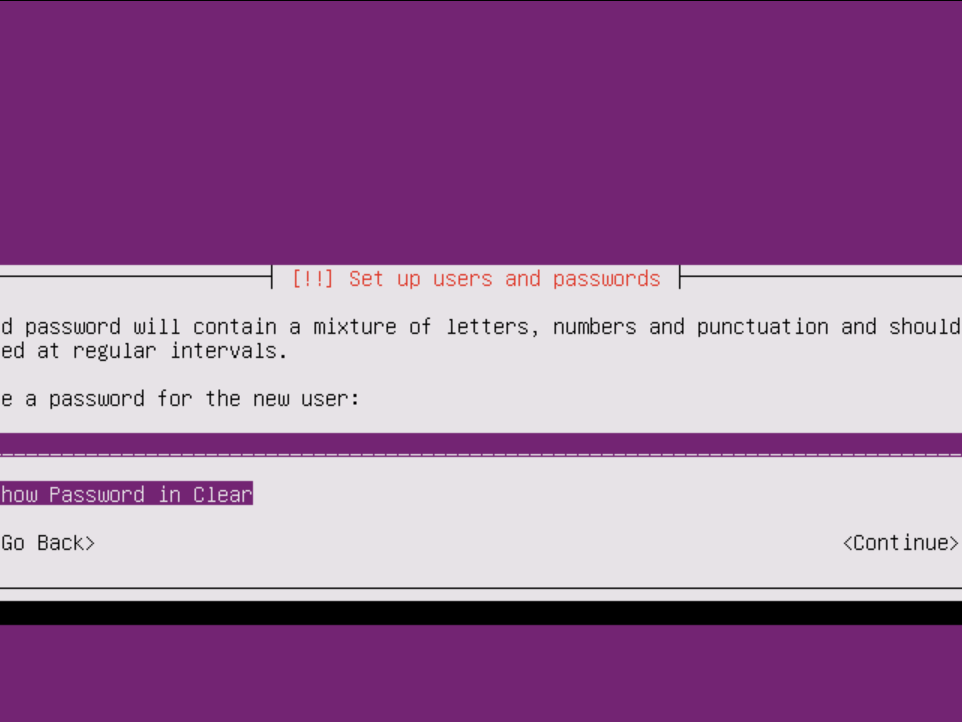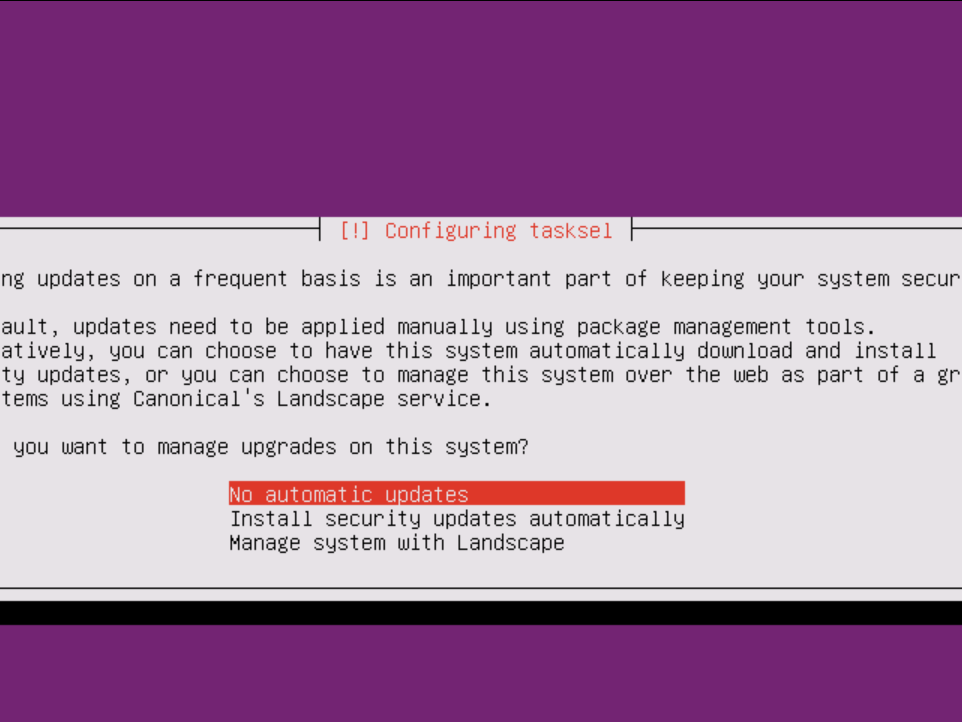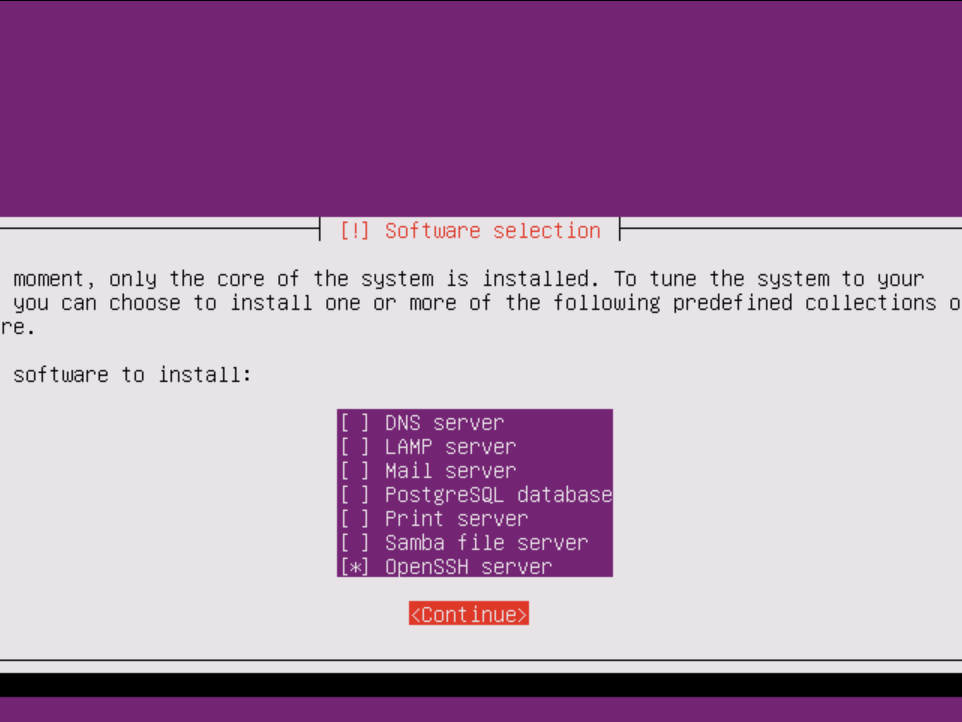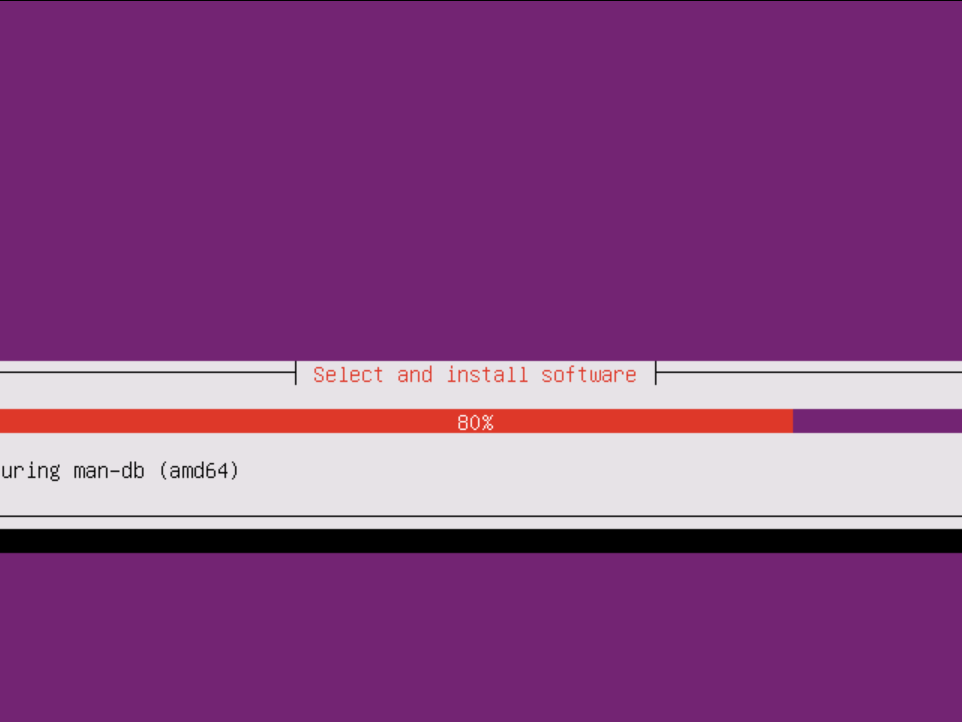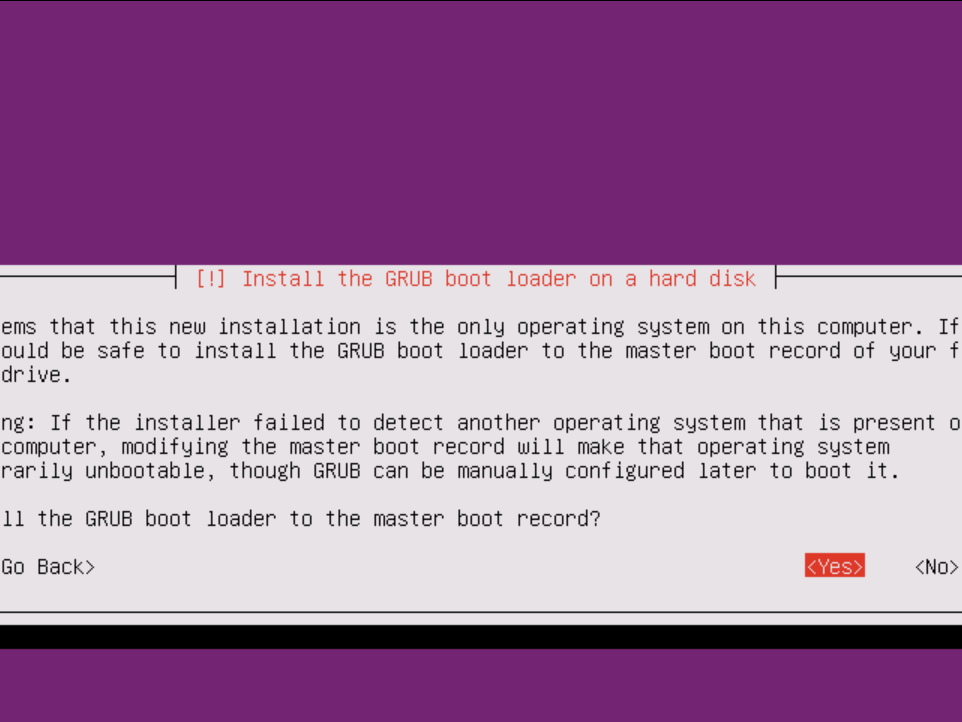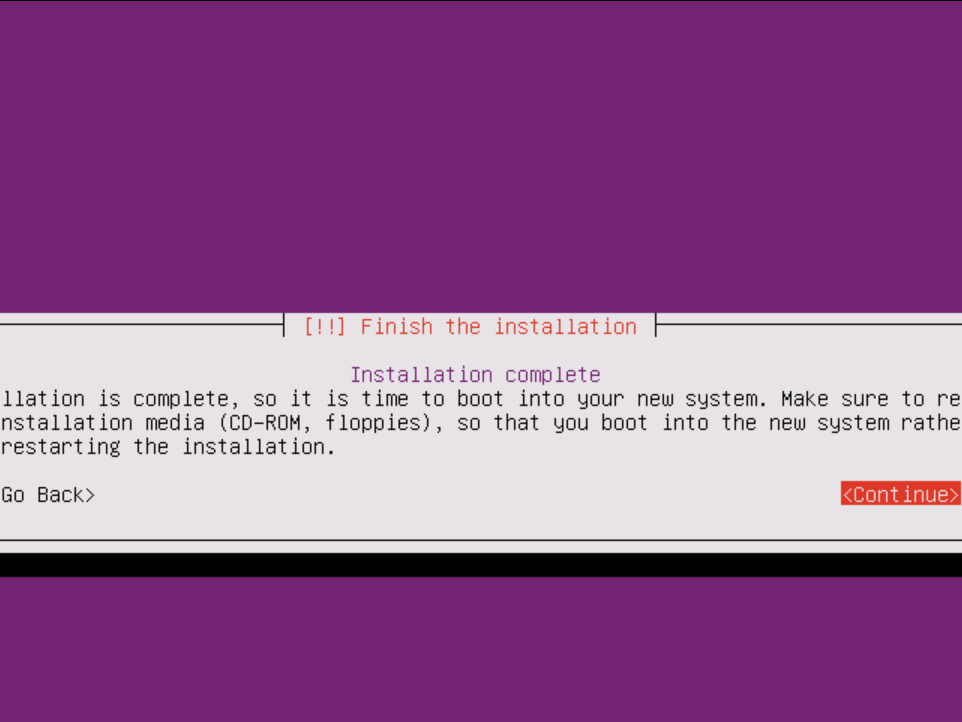Table of Contents
Install Ubuntu 20.04.3
Images will be fixed soon.. the terminal resized during the installation..
Check: Install Ubuntu 18.04.5 - its basically the same
Starting the installation
Download Ubuntu 20 live (with cloud crap) here: https://releases.ubuntu.com/20.04.3/
or download Ubuntu 20 legacy server here: https://cdimage.ubuntu.com/ubuntu-legacy-server/releases/20.04/release/
mount the downloaded Ubuntu 20.04.1 (legacy server) .iso file
reboot your system
select a language (english is fine)
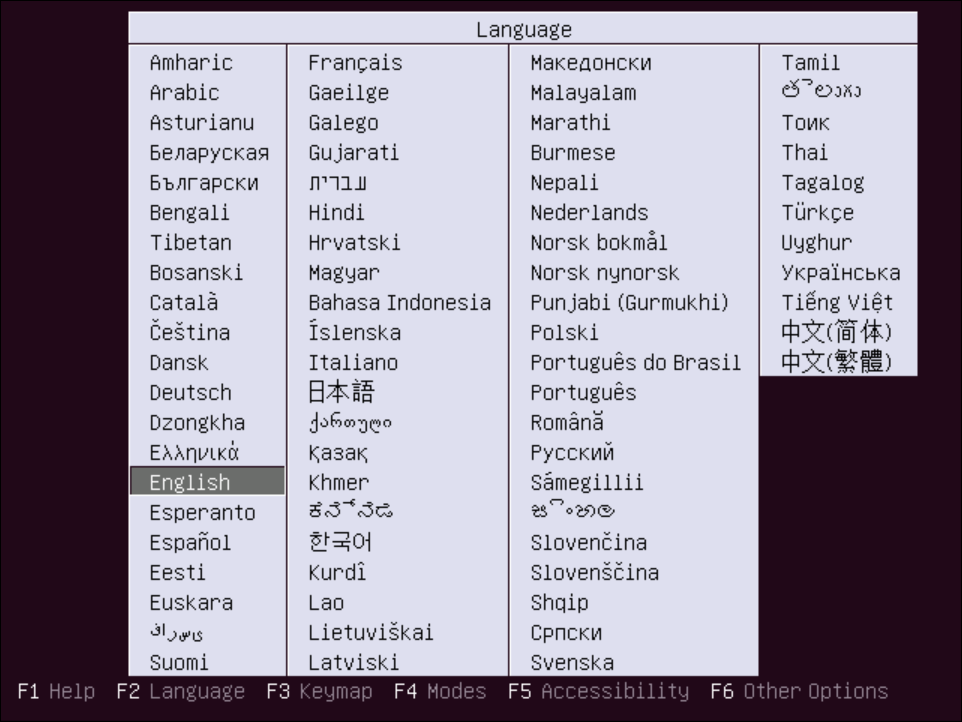
select “Install Ubuntu Server”
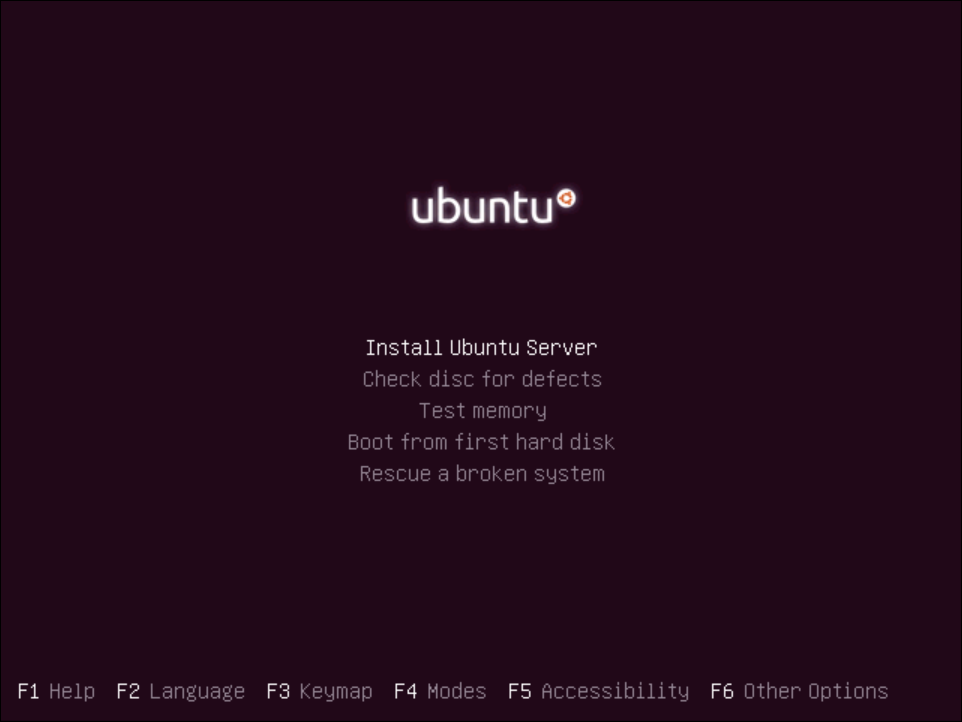
Configuration
Select your language
Configure the keyboard
Configure the network
Set up users and passwords
Configure the clock
if the autoselected timezone is correct select yes, otherwise select no and chose the correct location
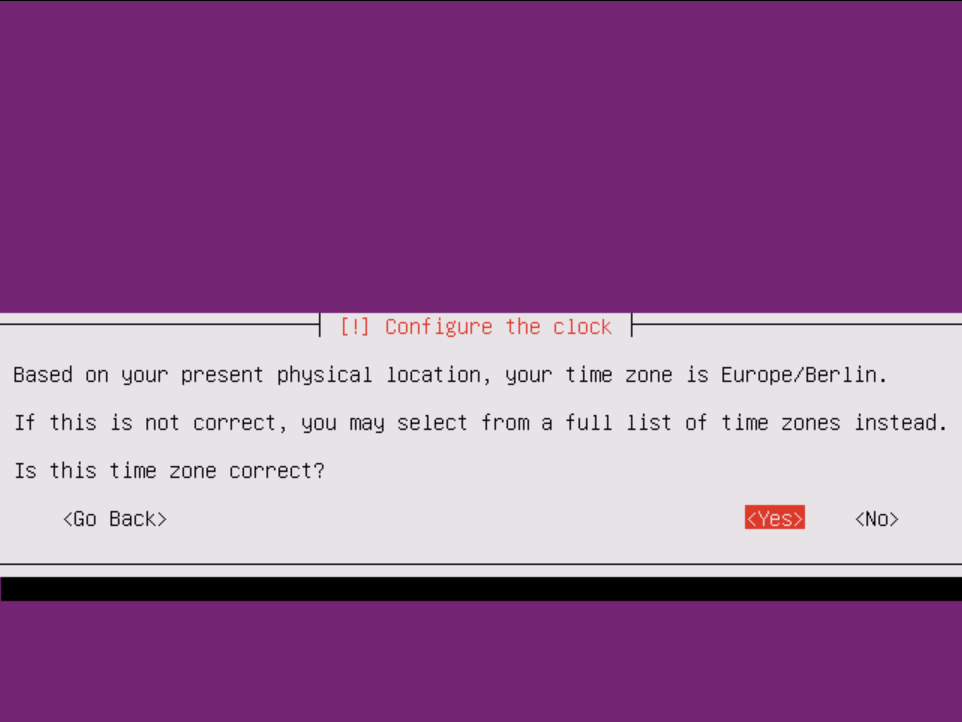
Partition disks
if you had a server before, select unmount partitions
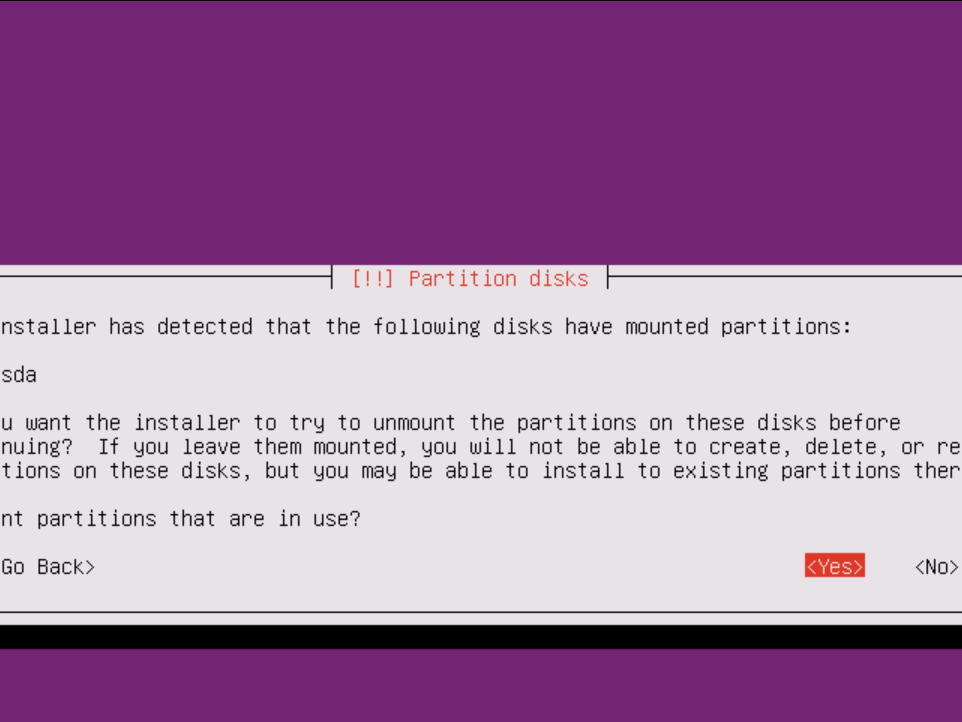
select “Manual” and then set up LVs (LVM)
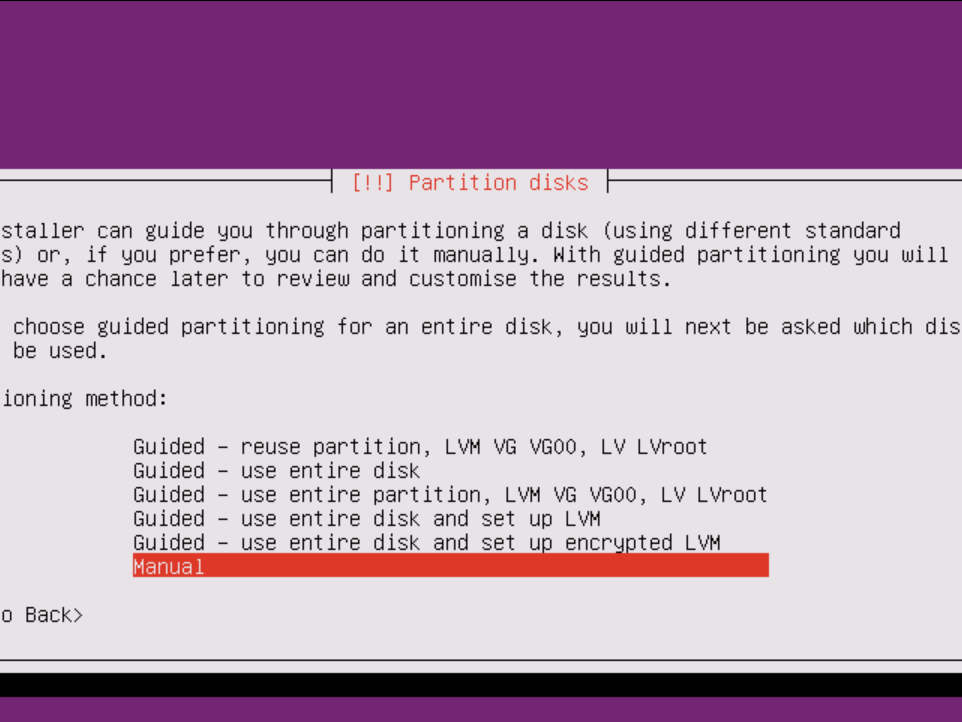
select your disk
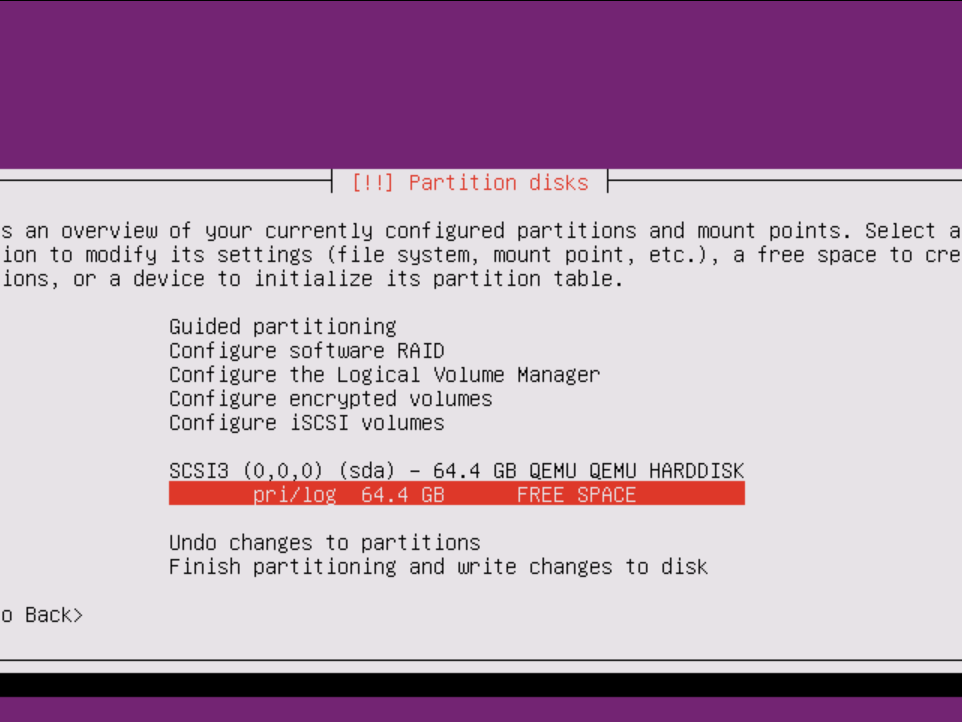
select “Create a new partition”
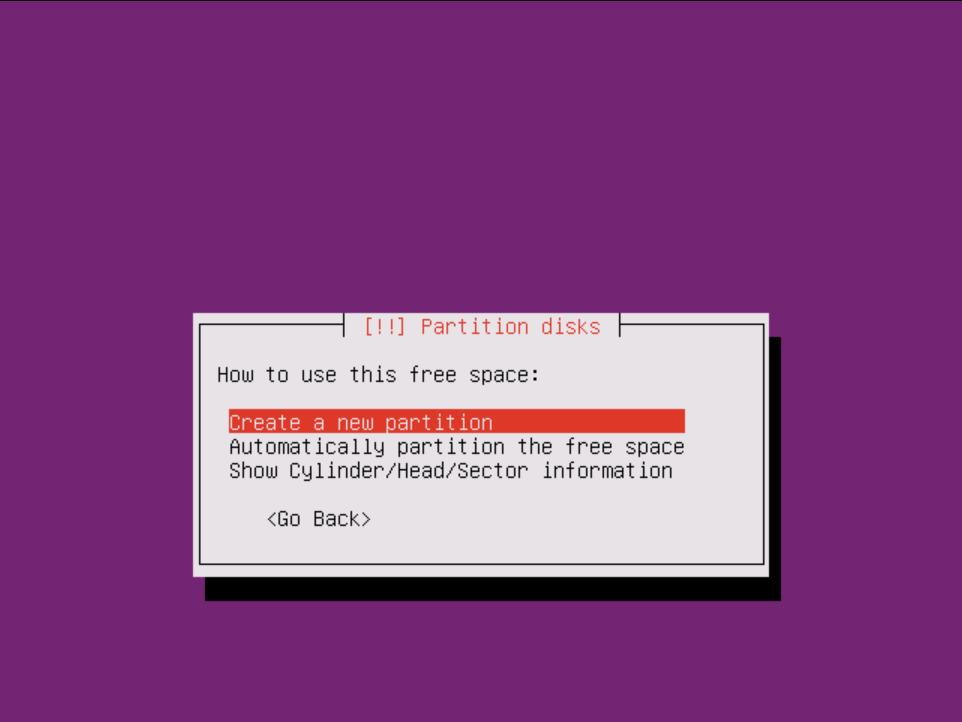
partition the disk MAX-1GB space (reserve 1GB for /boot)
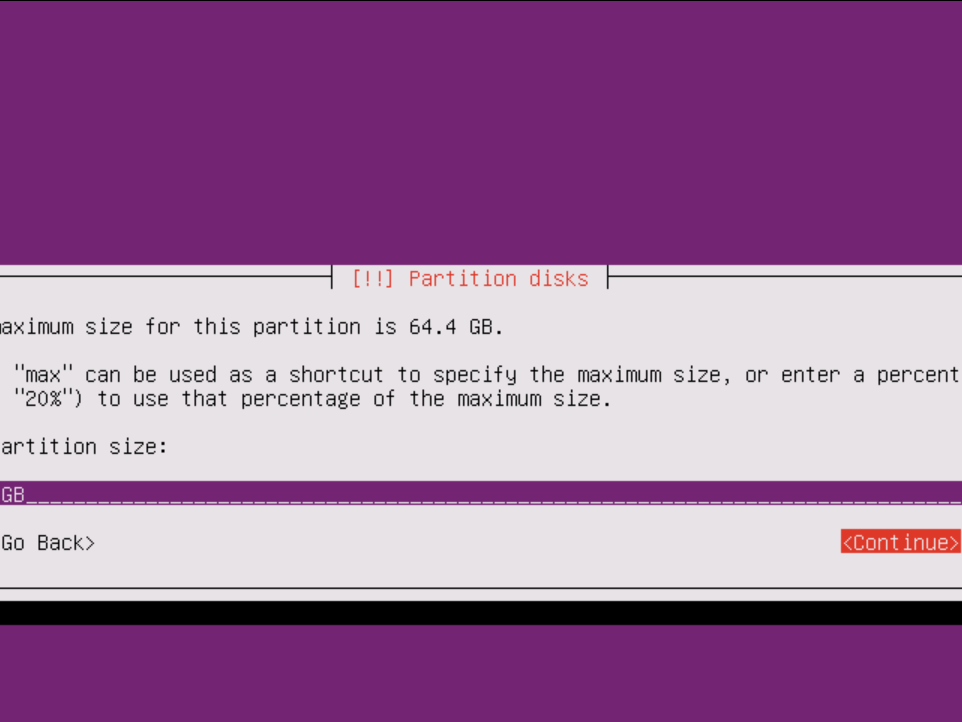
select “Primary”
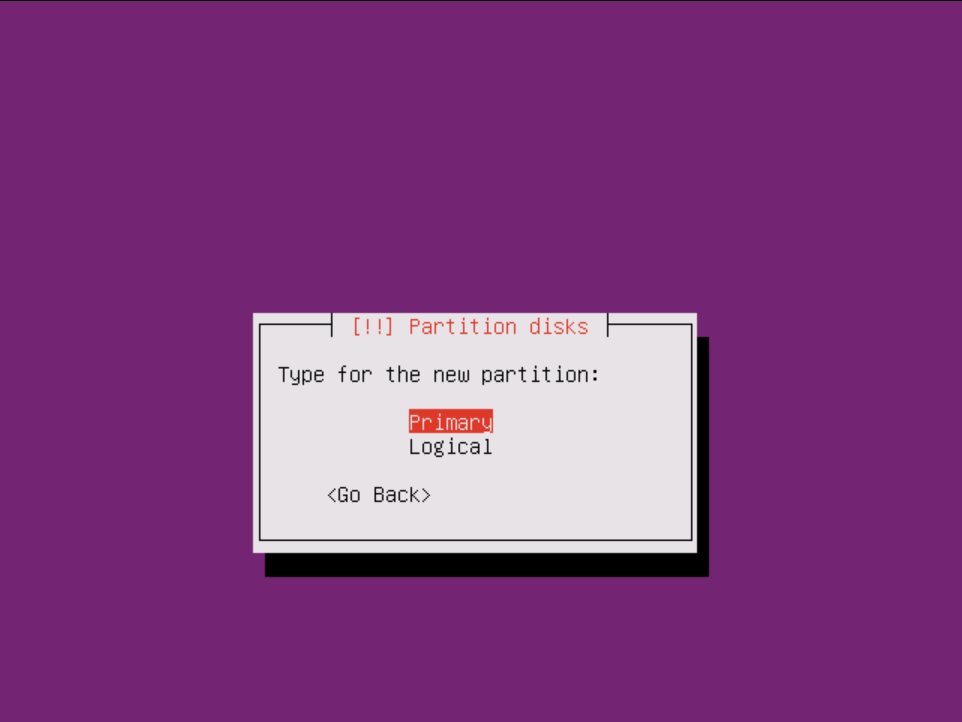
select “Beginning”
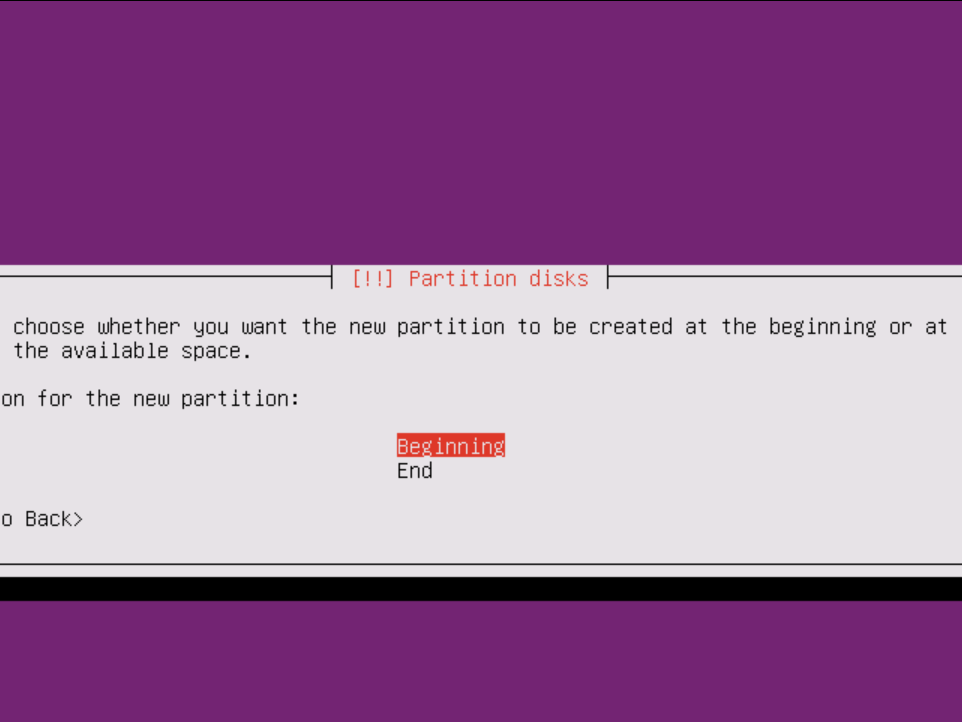
set use as “physical volume for LVM” and select “Done setting up the partition”
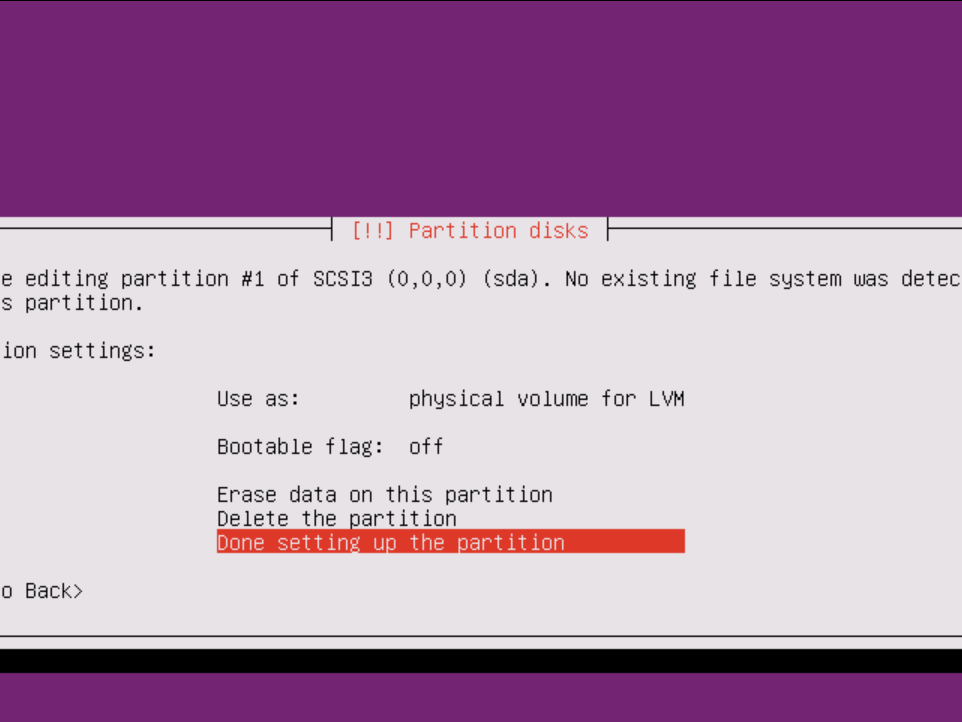
select the “1 GB FREE SPACE”
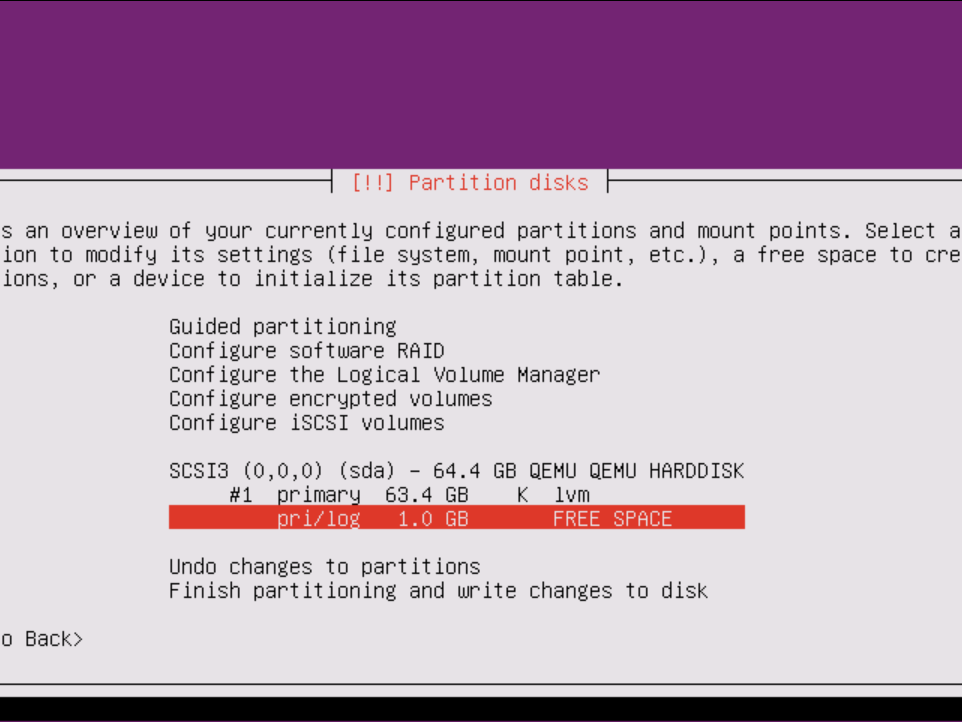
select “Create a new partition”
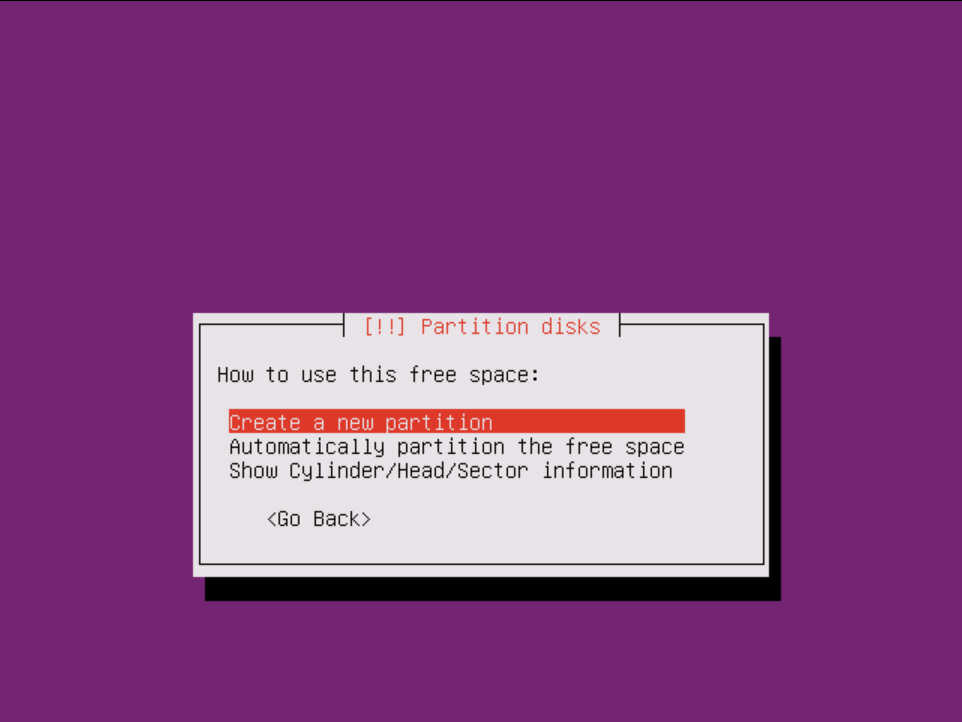
continue with the 1 GB
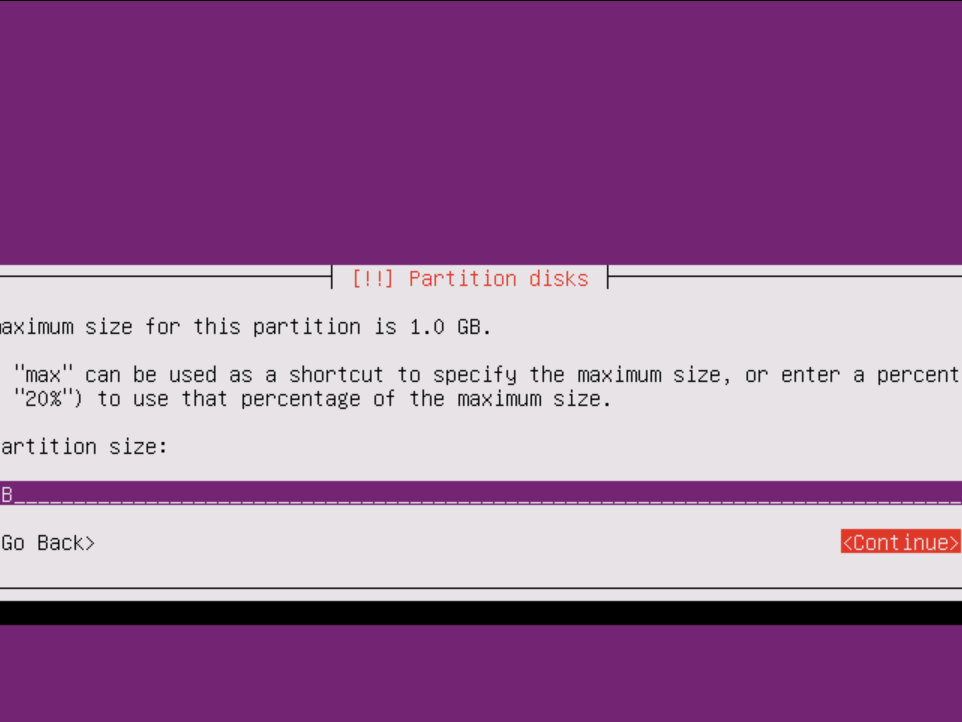
again choose “Primary”
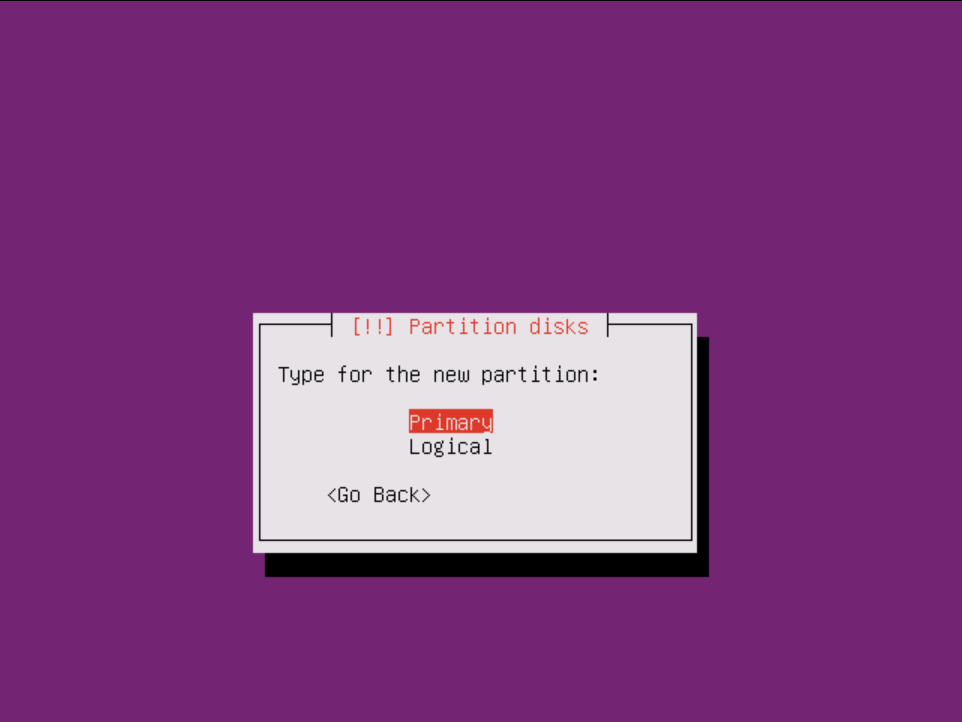
set “Ext4” and mount point “/boot”, you can also set the label as “/boot”
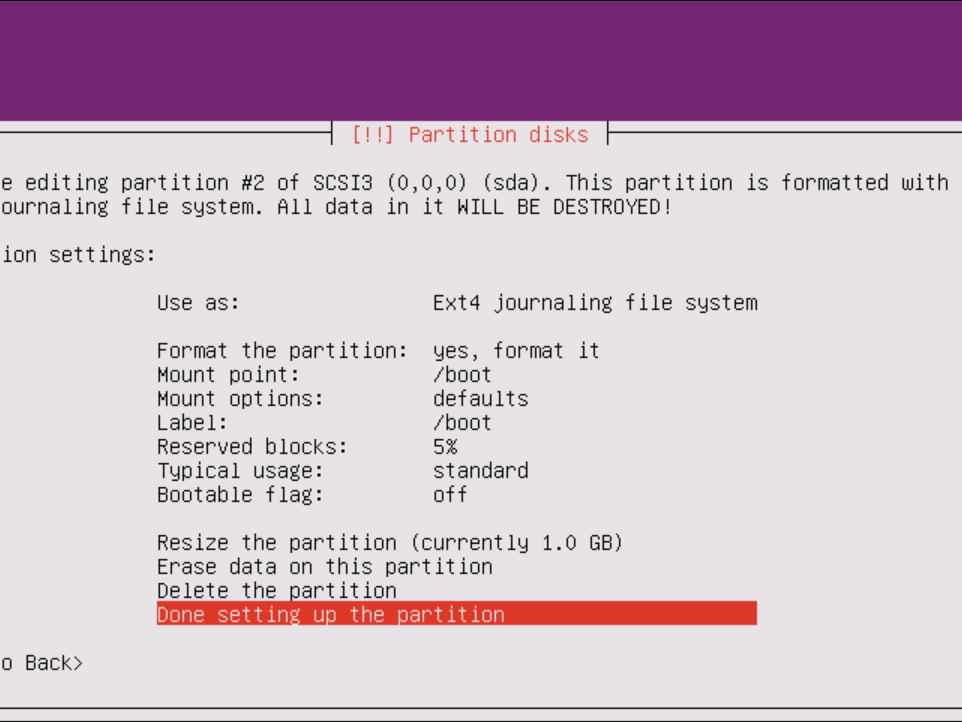
select “Configure the Logical Volume Manager”
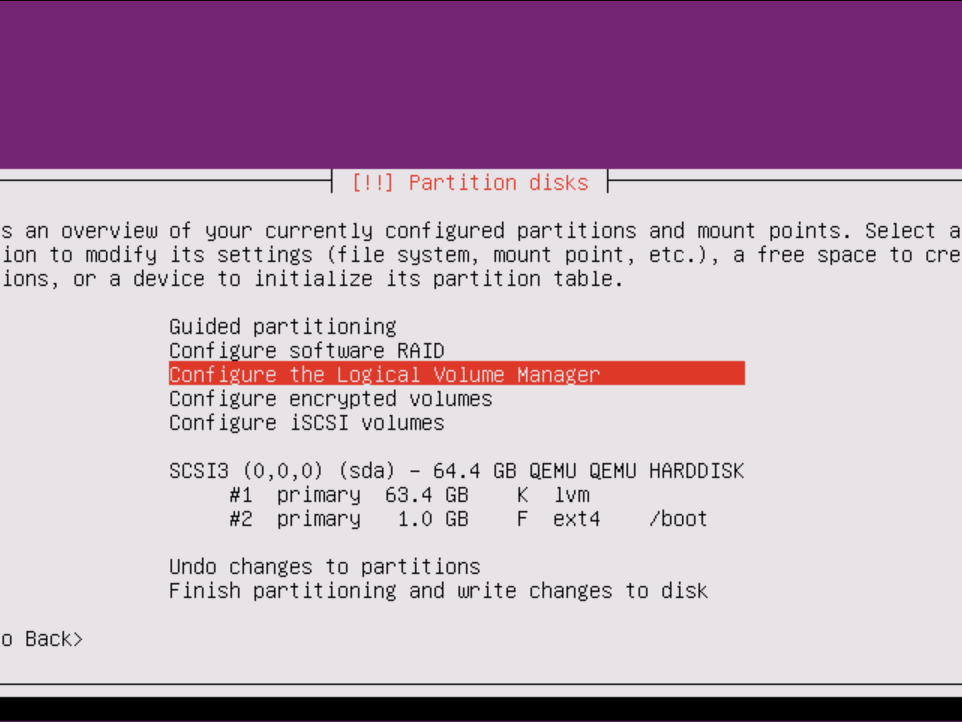
select “Create volume group”
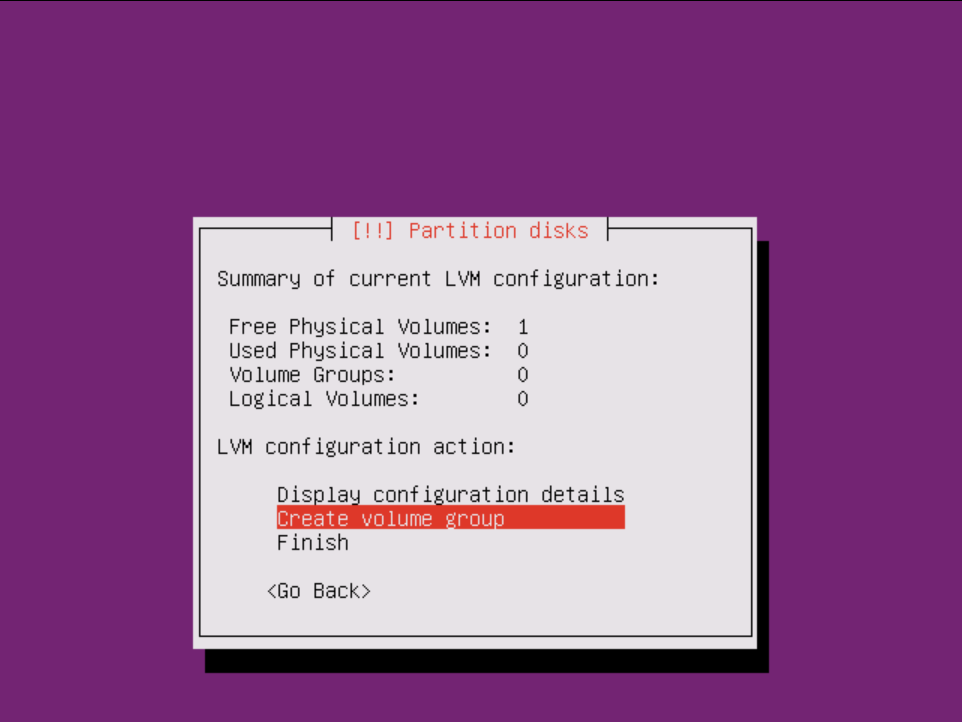
choose a name for your VG
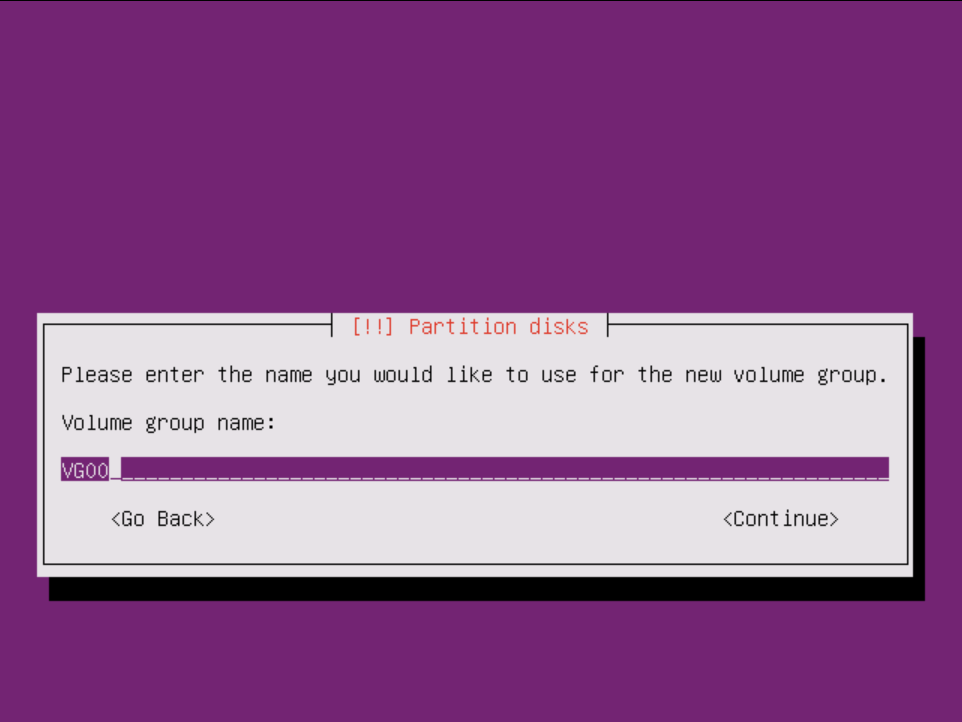
and place it on your correct partition
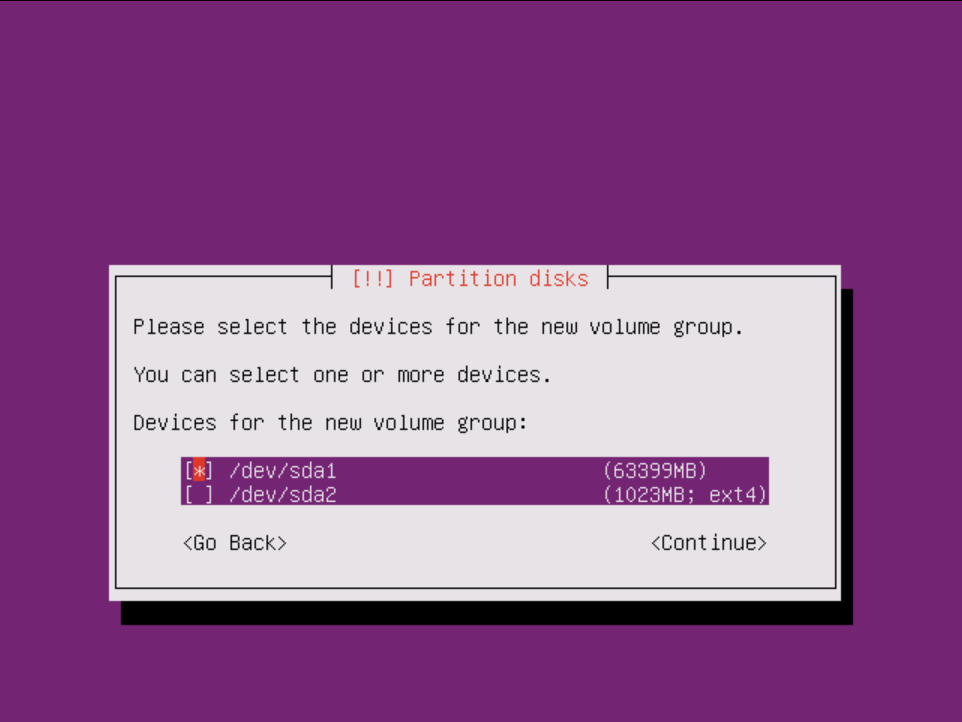
select “Create logical volume”
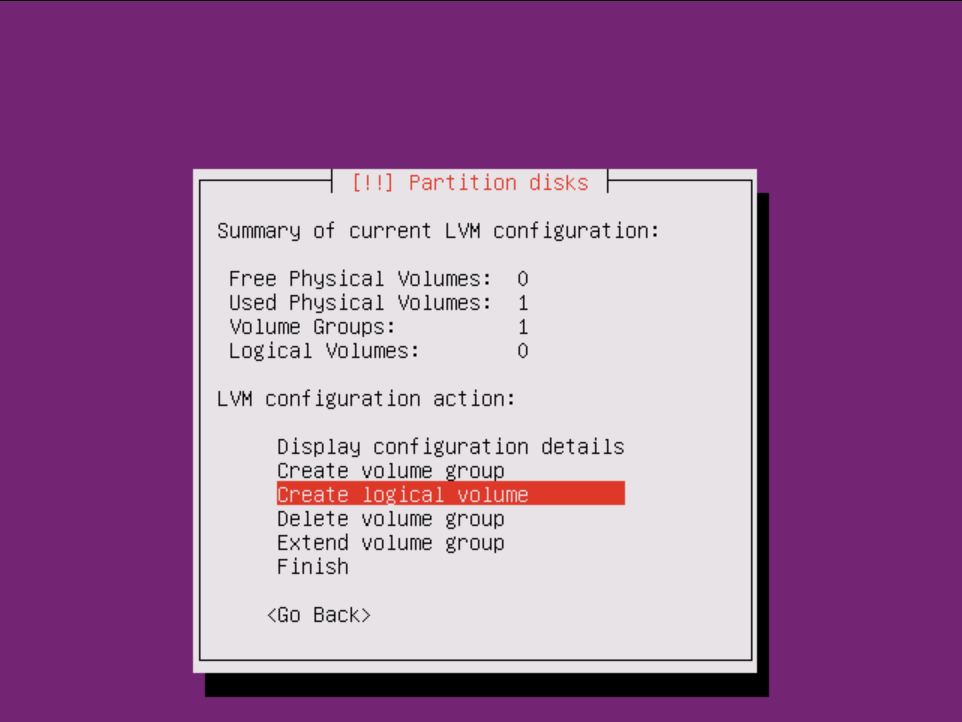
select your VG
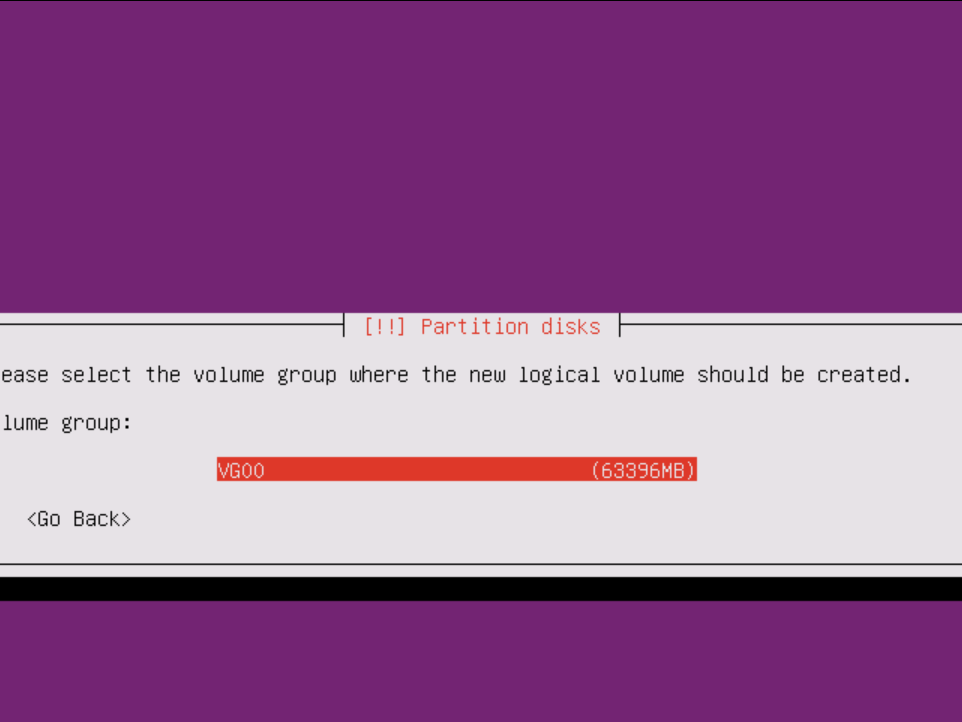
choose a name for your LV
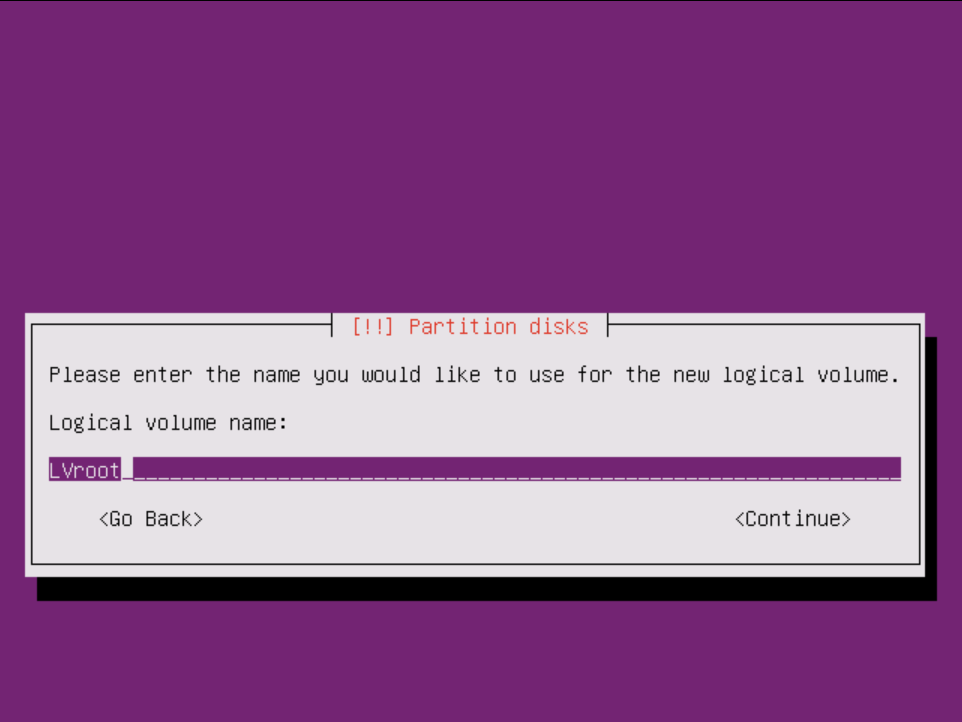
then select the size (if you have the chance to extent your PV/VG, you should create a 10GB root and some fitting /etc /var /home mounts as well. in my case I cannot extent it so I chose to use all on /)
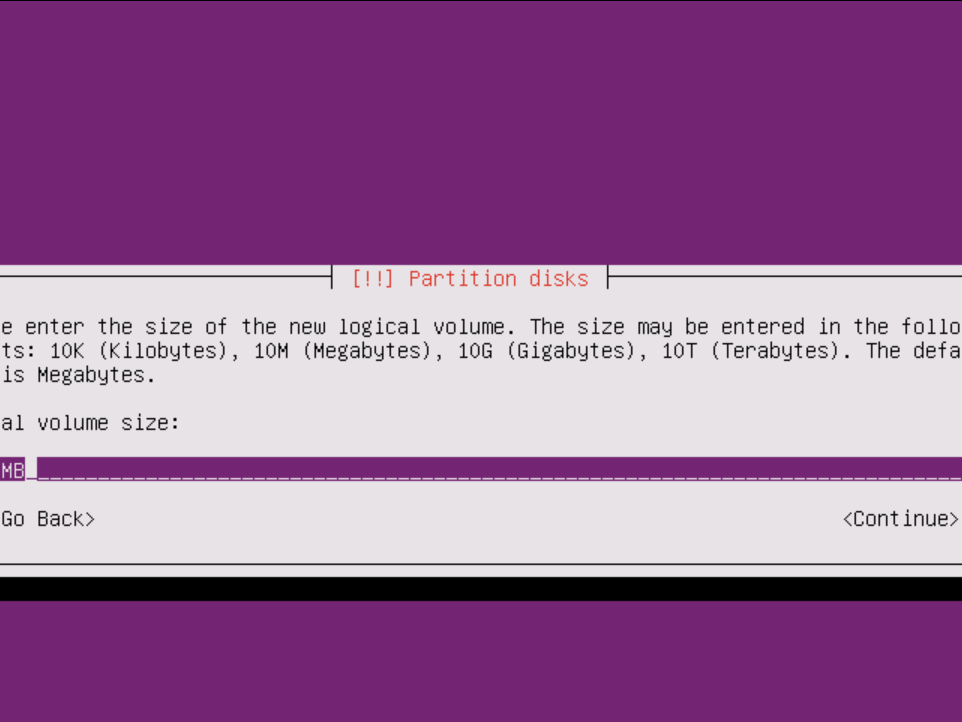
select your new LV
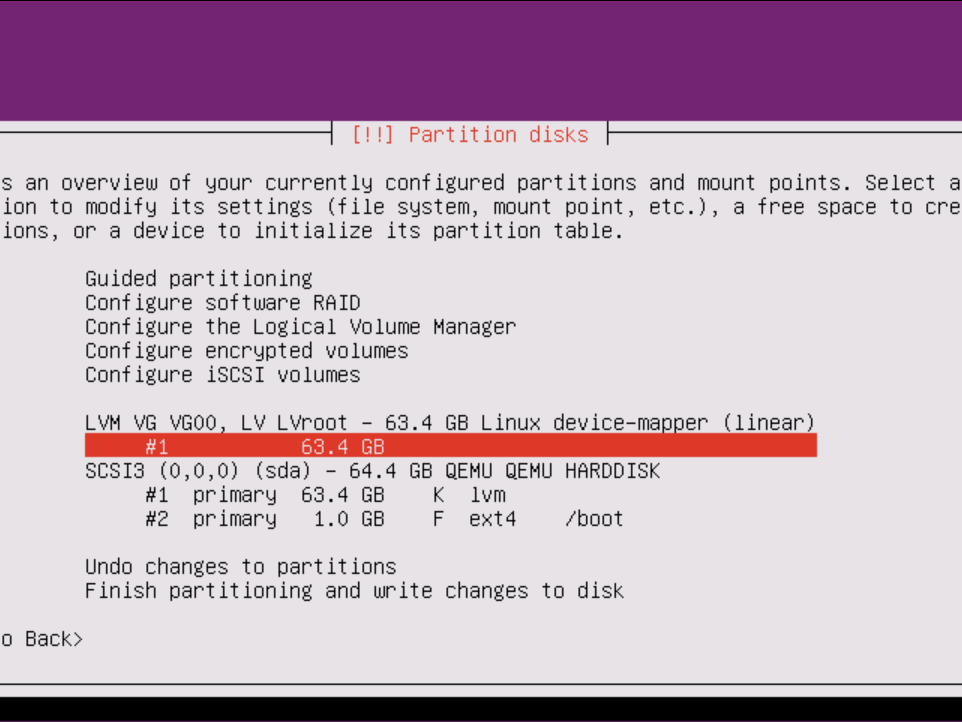
set “XFS” and the mountpoint “/”
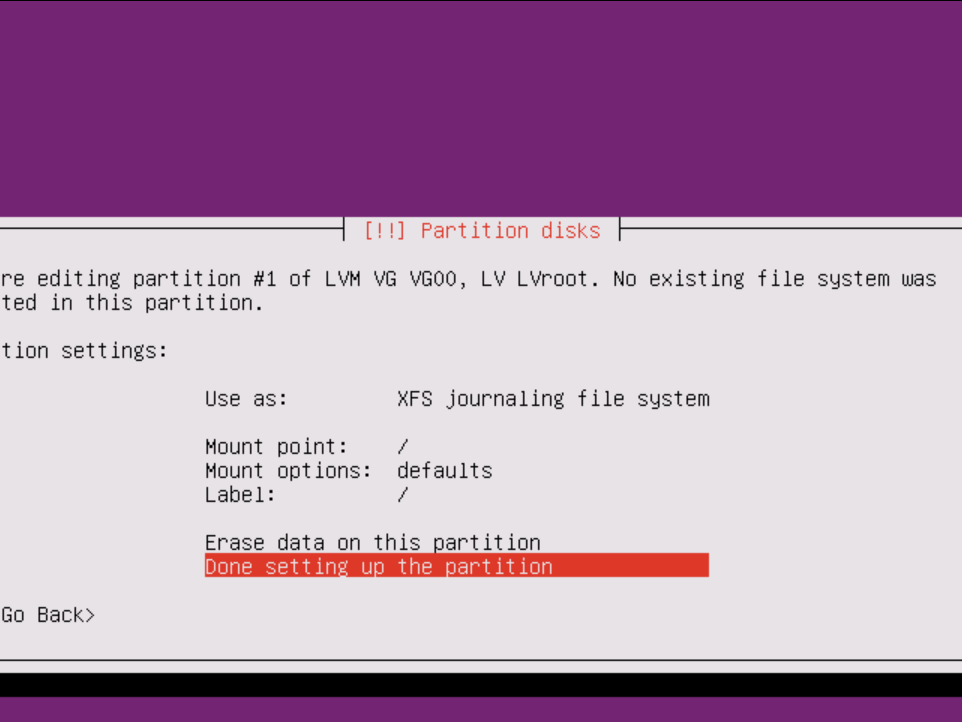
it should look like this now, if so, write changes to disk
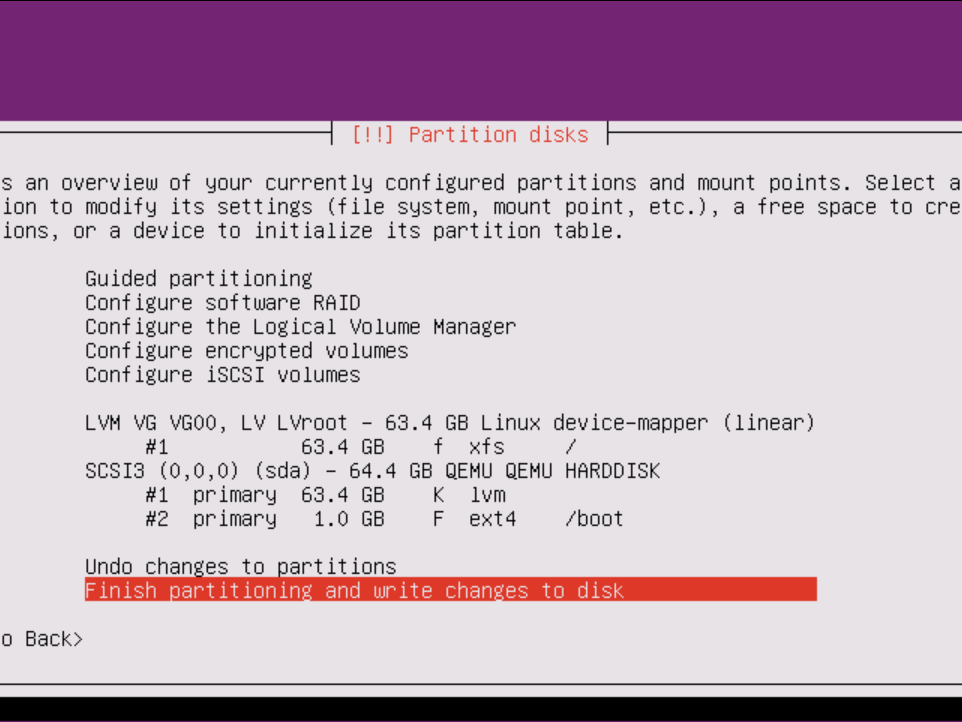
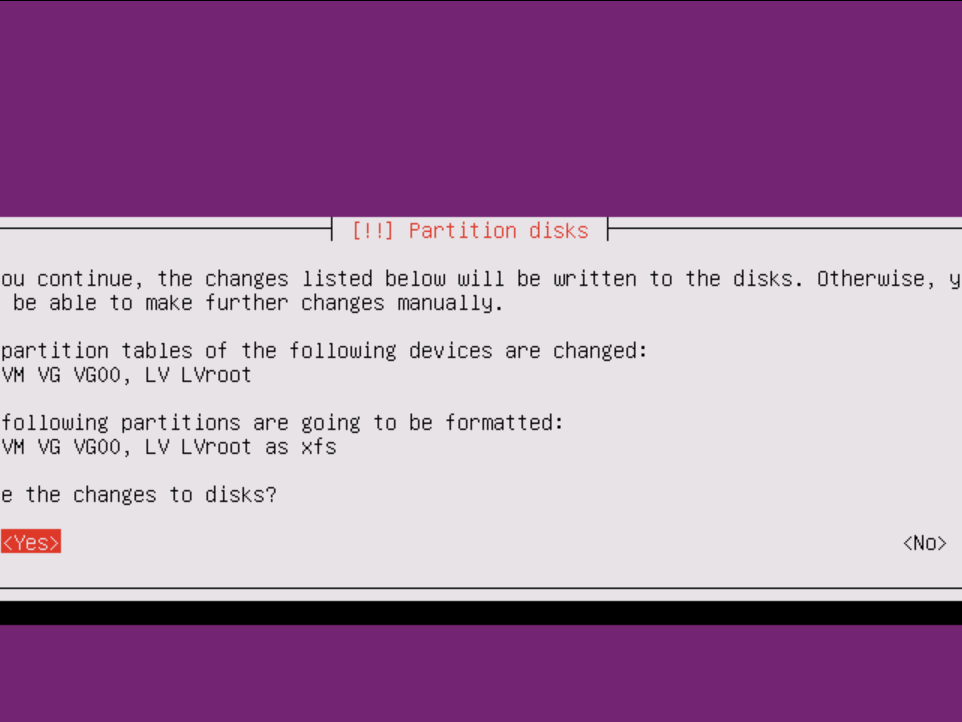
OS Installation
Proxy aka Configure the package manager
during the next loadingscreens you will be asked for a proxy, if you dont have one leave it blank, otherwise insert your proxyip
